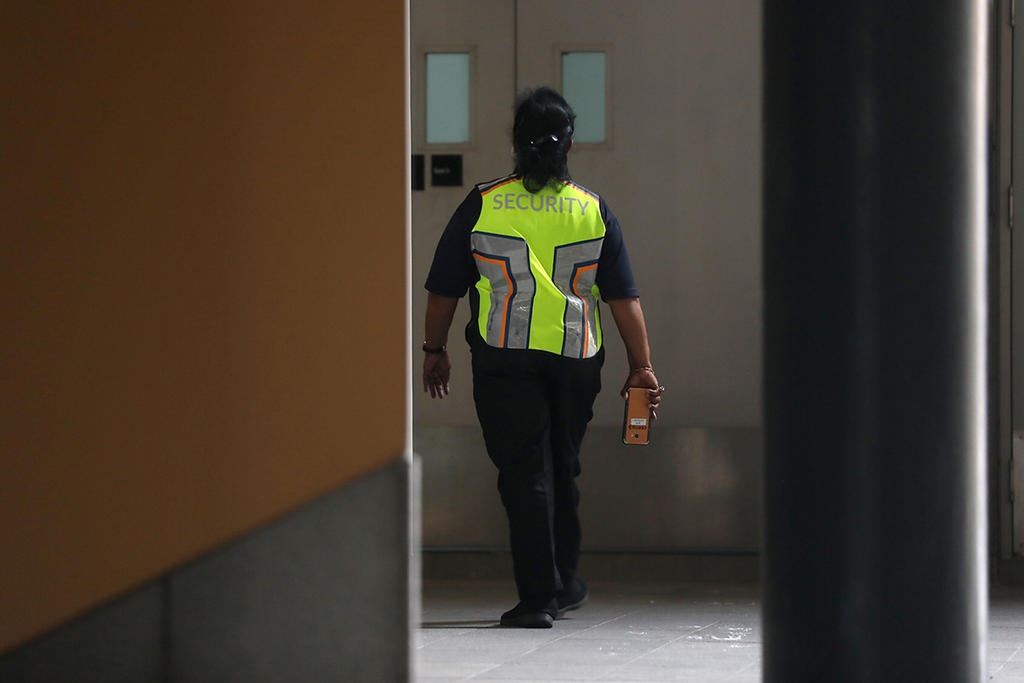SINGAPORE, Sept 13 — Security officers may soon have more protection from abuse, with penalties imposed on people who harass, assault or hurt them under amendments to the Private Security Industry Bill tabled in Parliament today.
These penalties will be stiffer than those imposed on individuals who commit the same offence against members of the public.
Introduced by Law and Home Affairs Minister K Shanmugam today, the amendments also propose removing the need for security consultants to be licensed under the Act.
Security consultants will be encouraged to be accredited under an industry-led accreditation programme instead.
Originally enacted in 2007, the Act regulates the private security industry, including investigators, security officers and agencies.
The tabling of the amendments follow several high-profile incidents in recent years of security guards being abused by members of the public.
In 2019, a video that was widely circulated showed a man verbally abusing a condominium security guard over a S$10 parking fee for visitors. The man, investment banker Ramesh Erramalli, was later issued a stern warning by the police.
The same year, British national Stuart Boyd Mills was jailed a week for hurling vulgarities at a 59-year-old security supervisor at Roxy Square Shopping Centre, tripping him and then punching him in the face.
A joint survey conducted last year by the Union of Security Employees and the Singapore University of Social Sciences had also found that the abuse of security officers at work had surged nearly one-third since the Covid-19 pandemic began.
In addition, about 40 per cent of officers reported encountering some form of abuse while on duty.
Proposed penalties
In a press release today, the Ministry of Home Affairs (MHA) said that security officers face a greater risk of confrontation with people when carrying out their duties due to the public-facing nature of their work.
The ministry noted that there are existing laws such as the Protection from Harassment Act and the Penal Code which provide protection for all victims of harassment and abuse.
However, there are no enhanced protection provisions specifically for security officers.
It added that broadening the scope of the Act to enhance protection for officers will send “a clear, deterrent signal” against abuse and harassment of security officers.
As such, the amendments will introduce new offences to address common types of abuse and harassment faced by security officers on duty.
The offences are:
Intentionally causing harassment, alarm or distress to security officers
If the Bill is passed, offenders may be jailed up to a year, fined up to S$5,000, or both.
In contrast, those who do commit such offences against members of the public may be imprisoned for up to half a year, fined up to S$5,000, or both.
Assaulting or using criminal force against security officers
Offenders may be jailed up to two years, fined up to S$7,500, or both.
This is a higher penalty than for similar crimes against members of the public, for which the punishment is up to three months’ jail, a fine of up to S$1,500, or both.
Voluntarily causing hurt
Such offences against security officers carry a jail term of up to five years, a fine of up to S$10,000, or both.
The penalty for such crimes against members of the public is lower — a jail term of up to three years, a fine of up to S$5,000, or both.
Removing licensing requirements for security consultants
Under the amendments to the Bill, MHA will also remove the licensing requirements for security consultants and encourage them to be accredited under the Security Consultants Accreditation Programme (Scap) instead.
The programme was launched by the Association of Certified Security Agencies and the Security Association Singapore last January, as part of efforts to grow a pool of competent security consultants.
Such consultants provide risk assessments for facilities and advice on security measures and deployment of resources to mitigate risks identified.
Currently, security consultants are regulated under the Private Security Industry Act.
They need to be licensed as they fall under the Act’s definition of security service providers.
If the proposed amendments are passed, security consultants will no longer be licensed under the Act.
Instead, accredited security consultants will be required to continue their professional development under Scap and renew their accreditation status yearly.
The ministry said that the Association of Certified Security Agencies and the Security Association Singapore will be well-poised to oversee the accreditation of security consultants as the associations are attuned to trends and needs in the industry.
So far, there are 17 security consultants who are accredited under Scap.
The ministry said that the risk of these consultants abusing their position to commit security-related offences is low. This is because they do not supply actual security systems or have access to premises where security systems are installed or maintained.
MHA added that there have been no reported cases of abuse in at least the last five years.
“Nevertheless, safeguards are in place to ensure that the credibility of security consultants is maintained after deregulation from the Act, including a disciplinary process for infractions committed by accredited security consultants under Scap’s code of ethics.”
The ministry said that security consultants who abuse or disclose sensitive information obtained in the course of their work may still be prosecuted under other laws. — TODAY






















